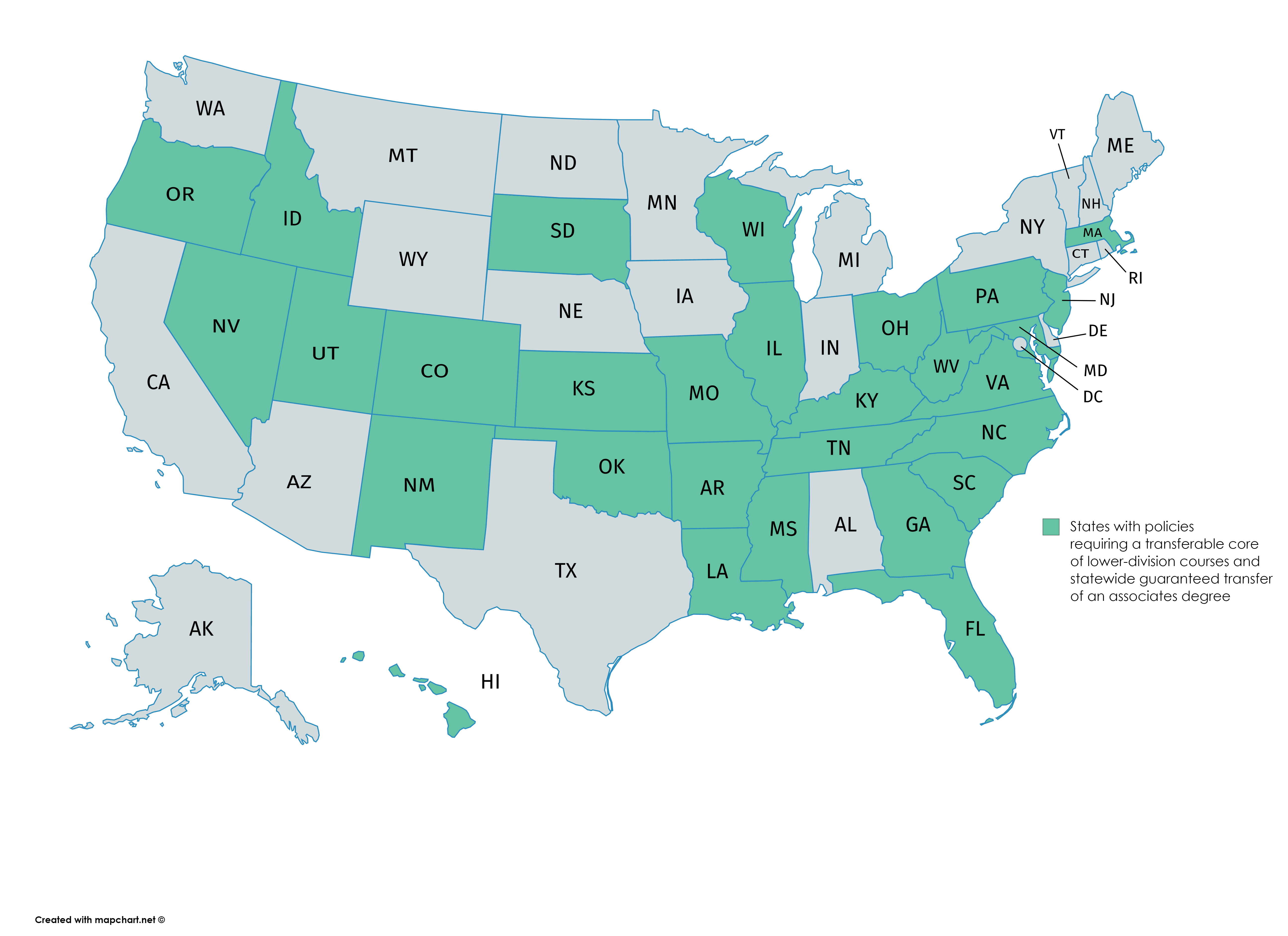According to the Education Commission of the States 50-State Comparison: Transfer and Articulation Policies report.
- At least 30 states have policies requiring a transferable core of lower-division courses and statewide guaranteed transfer of an associate degree.
- 17 states have reverse transfer policies set in legislation or board policy.
- An additional 22 states provide reverse transfer opportunities outside of policy, including through institutional agreements, MOUs and statewide programs.
- Only 17 states have statewide common-course numbering used at all public postsecondary institution for lower-division courses



The report notes that many states are refining statewide transfer policies, which suggests a commitment to increasing student completion rates.
The report compares all 50 states in four transfer metrics: (1) transferable core of lower-division courses; (2) statewide common-course numbering; (3) stateside guaranteed transfer of an associate degree; and (4) statewide reverse transfer. The document presents tables showing how all states approach these policies as well as individual state profiles.

Six states have policies in all four metrics: CO, FL, KS, MO, NV and TN; and six states have no policies in the four areas: CT, DE, NE, NH, NY, and VT. The rest of the states have some but not all of the policies in statute, sometimes because of more than one higher education system within the state, i.e., different system policies, or because of non-alignment with the community college system. In many states, even if a transfer policy is not in statute, agreements are in place between specific institutions or systems within a state that permit transfer of lower-division courses, reverse transfer, or guarantee transfer of an associate degree.
50-State Comparison: Transfer and Articulation Policies
Education Commissions of the States, 2018